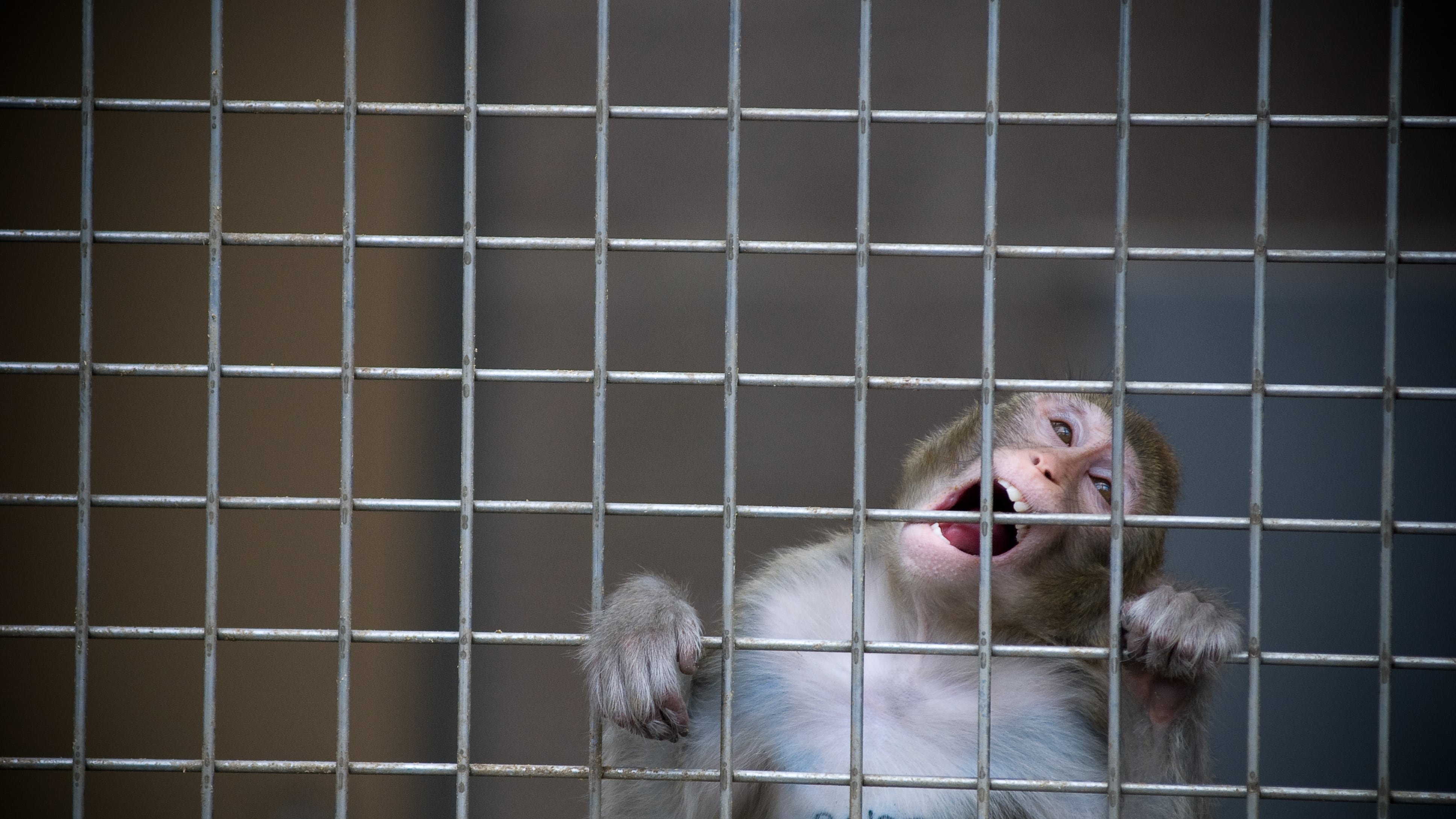Multnomah County Circuit Judge David Rees ruled Monday that Oregon Health & Science University must turn over 74 videos of experiments it conducted on monkeys to People for the Ethical Treatment of Animals.
PETA had filed a lawsuit against OHSU in 2019 after the hospital's Oregon National Primate Research Center denied PETA's public records request for the videos. The center currently holds 5,000 monkeys, PETA said in an email statement.
According to Monday's order, the videos show researchers documenting 11-month-old Japanese macaque monkeys' anxiety and stress responses to a "novel object test" and a "human intruder test."
A research paper was written about the experiments in 2017, court records say, but since then, no one has viewed or analyzed the videos.
OHSU is a public institution, and the research on the macaque monkeys was funded through a grant from the National Institute of Health, court records say. On this premise, Rees ruled that the videos are subject to public disclosure.
Rees added that the primate center has previously been in violation of regulations, resulting in harm to animals, and that it is in the public's interest to ensure the facility is still in compliance with requirements.
"Some of these violations caused harm to [primates] and some did not," Rees wrote about the center's previous studies. "The public has an interest in seeing ONPRC's videos of its [primate] studies to ensure ONPRC's compliance with regulatory requirements in using [primates] in experiments."
An OHSU spokeswoman said it is standard practice for research institutions to keep materials confidential until findings are published in peer-reviewed publications.
"The judge has determined that 74 research videos, from which an analysis and description of behaviors observed has been included in peer-reviewed publications, must be released to PETA. The other 3,000 requested videos, from which analyses ha
In a statement, PETA said it considers the judge's order a victory.
"OHSU was happy to take millions of tax dollars to impregnate monkeys, feed them 'junk food,' and then separate the baby monkeys from their mothers in order to deliberately frighten them—but it fought tooth and nail against releasing the videos of this horror," PETA senior litigation counsel Martina Bernstein said in a statement to WW. "The university has lost, but the public has won."

